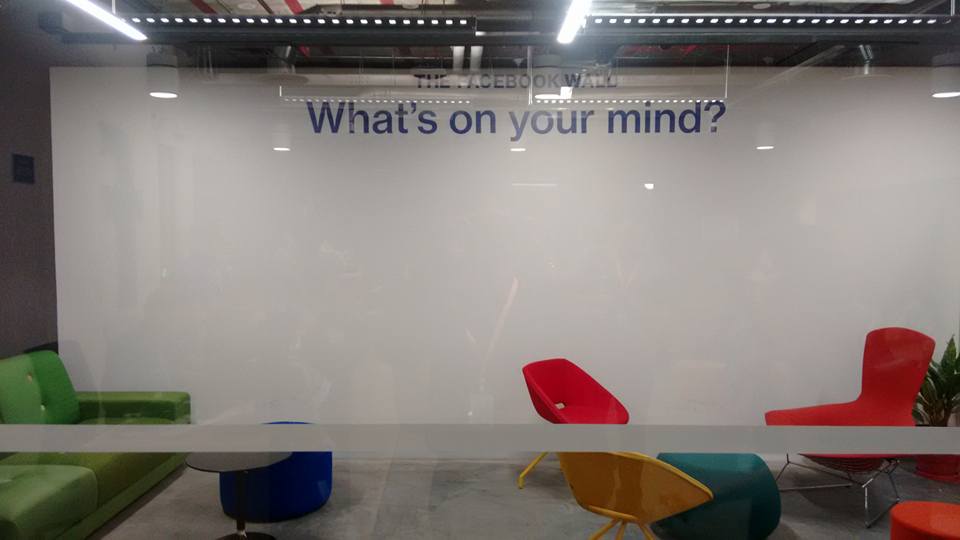Having worked at one of the world’s best companies, touted for its supreme work culture, and from otherwise interacting with a ton of professionals during my 7 year career, I know a bit about the corporate sector.
Without getting into too many qualifying details, or revealing what the company is in question, let me dish out a healthy amount of critical assessment for my last workplace that happens to be a reasonably well known, 7 year old “startup”. My criticism doesn’t stem from a case of sour grapes or the fact that I don’t like working. I do, in fact I’m an above average employee and I’ve been working for over 7 years now. But the company in question made it so hard for me to love it, or even like it a little or be motivated to get much done. I know not many people like their workplace but let me illustrate some of my pain points with specific examples. In fact I’ll write these chronologically, in the order of me joining the company to when I finally put down my papers.
The lack of a strong CEO and co-founder
After joining the company, I learned that out of the 3 co-founders that founded this startup, 2 have left under mysterious circumstances, and the remaining one can easily be missed. With due respect, he’s as gormless, as no CEO should be. I mean here’s a guy who founded a reasonably successful company and employs over a 100 people. But I was disappointed to see a man with little charisma, mediocre speaking skills, no sense of humour, and worst, an unfriendly disposition. I’d like to walk into the office, and be able to smile at my ultimate boss, not look the other way.
No budget? Not when it comes to paying agencies for nothing.

When it comes to spending things on really matter, for example, investing in a good stock image plan, the management spins the old trope of “budget issues” or “funding is coming through” or worse “you need to come up with an ROI plan” but surprisingly no one minds the fact that we have a creative agency which is paid the salary of a few software engineers, and the same agency, that is yet to produce a single work, even good enough for a social media post, leave alone create a brand rejig for the company.
The facilities or the lack thereof
I understand that startups need to be scrappy. So I’m okay with no in-house gyms, 3 course meals or no celebrity studded corporate events. But hey, a microwave is the least I (and a bunch of other caffeine-deprived employees) ask for. I’d like to have a coffee or a green tea or a Maggi, when I really need to and how much I want, rather than having a grumpy old man jam down a shot glass sized paper cup onto my desk at scheduled times of the day. Let me put it in context, it costs around Rs. 5000 (even less for a second hand) for a basic microwave that can heat a cup of milk. With all the chatter around coffee culture at work, and the need to be “well caffeinated”, does it really hurt an organisation to invest this tiny amount? (the startup in question is pretty profitable.)
They lied in their recruitment emails.
“Join this dynamic young fun startup”, they said. “You will own your work”, they said. What they didn’t say though the company is far from dynamic, fun or young. It’s an old Indian government company in the guise of a young startup. The people employed in HR dept, work like government employees blindingly following policies and rules that are as employee unfriendly as can be.
The HR was less about employee welfare, more about doubling up as school principals.
Perhaps, the HR people really dreamed of heading a school or being class monitors, but couldn’t quit fulfil those so next best thing, let’s get into HR. There’s no semblance of logic or any consideration for whether the employee benefits from a so called perk (Leaves in this case) but it has to be followed because “this is only the policy”. Chew on this. The HR one day suddenly decide to move a bunch of people to a nearby shared sharing space as the existing office ran out of space. But on what basis were these people chosen – Zilch. The person (I) who works with 10 other people and needs to physically meet them every hour, is made to do these up and down trips from one office to another, while people in independent roles can stay put. Why? “Because that’s how it’s been decided.”. They are like this only.
Their employee engagement activities are more forced, than desired
Maybe it works for some people, but personally, if you must do something on an occasion, put a little heart into it. Keeping the cheapest, tiniest bar (more like bite) of department store chocolate you could find in the market and an A4 sheet cut into 8 greeting cards printed in-house from a printer running low on colour isn’t really a great Diwali gift, it just rubs in the lack of effort, and doing things for the sake of them.
There were no team exercise, no trips, no outbound events

I am not a big fan of forced outbound activities that involve running with your legs tied up or drawing your “childhood memories” (yes, I’ve had that in my previous company), but I understand that people need to step beyond their dreary cubicles and the depressing office environ, every once in awhile to see their colleagues in a different light, that’s not fluorescent.
In this company, there were no team events, no parties, no quarterly or yearly trips and the closest the team had come to being together is “combined monthly birthday celebrations” where each person listlessly stands by till the last person has sliced their piece of cake and served themselves a Fanta, while none really even wishes the birthday boy or girl or knows what their name is.
They really needed to be secular
As a Hindu, I have no personal grudges that they did an elaborate Aarti or offer prasad on every Hindu festival in the office. My problem is that this breeds a non-inclusive culture. The office, while being mostly hindu dominated, also had a healthy mix of other religions. By focussing only on festivals relevant to one religion, an organisation is not only focussing on a religion which a business shouldn’t, but also forcing it on the other people.
Empty corporate jargon, little action
There are people who are smart, but there’s an even bigger number of people who on face of it, have their degrees and experience, but are totally incompetent or inefficient. There are people who regularly bandy about stock terms as “content is king”, without a fairest about what entails content, or “premium MBAs” who doodle endless charts on whiteboards, but never really saying anything substantive. (No really, why draw a whole app on a whiteboard when we can see everything on the phone, on the very app?) Simple things that can be done in hours and days get stuck in a never ending rigmarole of processes, excel sheets, “gantt charts”, and more meetings. Startup what?
Lack of professionalism towards candidates
The aforementioned HR’s lack of consideration does not restrict itself only to current employees, but also prospective ones. Candidates are kept waiting at the reception for long, without any update on how long it will take or even an offer of water. But I guess if people chose to join the it even after that, they deserve this company. Listen whoever said that HR is all about “having a cheery disposition’ isn’t the half of it. You really need to make people comfortable and happy to be work in your company. Saying “A sick leave unless you’ve earned it, even if you’ve t with the biggest smile isn’t going to help.
Salary delays
It’s not uncommon for employees to receive their salaries as late as a month into the next month. Personally, this is the least of my worries, but some people do need to take care of their families, pay bills, and live pretty much paycheque to paycheque. Seeing those people resort to asking for loans, despite earning well, is just sad. While I get that startups usually have cash problems, if the company is so okay with delaying salaries by up to a month, castigating employees for delay in reaching the office sounds like double standards to me.
No eye for good work despite all the money
As a professional who’s seen and even part of some of the greatest work in ecommerce, design and product, it hurt me to say product managers at the company blind to egregious mistakes such as an post-dated featured discount on the homepage, or a spelling or grammatical mistake on app store description. The company didn’t think twice before using marketing visuals that were last used in 2006, while they had tons of cash lying in their coffers to buy the best possible stock images money could buy. They preferred numbers, over impact.
They did not really care about the customer
For a company that’s largely service driven with little product differentiation, marketing and customer service could be a make or break deal, but they don’t seem to care. Whenever a customer complained the focus usually wasn’t on “how do we fix this?” or “how do we make sure we don’t get complaints like this in the future” but rather “Oh who’s the most clever response we can come up with” other than regularly considering people who chose to give feedback as ‘idiots’. Needless to say, my suggestions for compensating the beleaguered customer with a sorry voucher or a goodie ala Zomato went to sheer waste.
It took me a little over 6 months to realise that this wasn’t an organization I related with or saw my future at. I finally put down my papers after completing 6 months letting go a reasonably high pay check. The reaction or just the indifference I got from the management as soon as I started serving my notice period reaffirmed everything that was wrong with the place. Just like joining the company came with no fanfare or welcome events, leaving it was as inconsequential. Though it did leave me with a series of takeways on what the difference between a good and a bad ‘company culture’ is.
Maybe this post could help other stakeholders, present and future startup founders, management, and above all HRs to sit up and take notice. Your company culture, more than your product will define your success. Focus on that, make people “want” to work for you and give their 100% to it, funding can come later.
